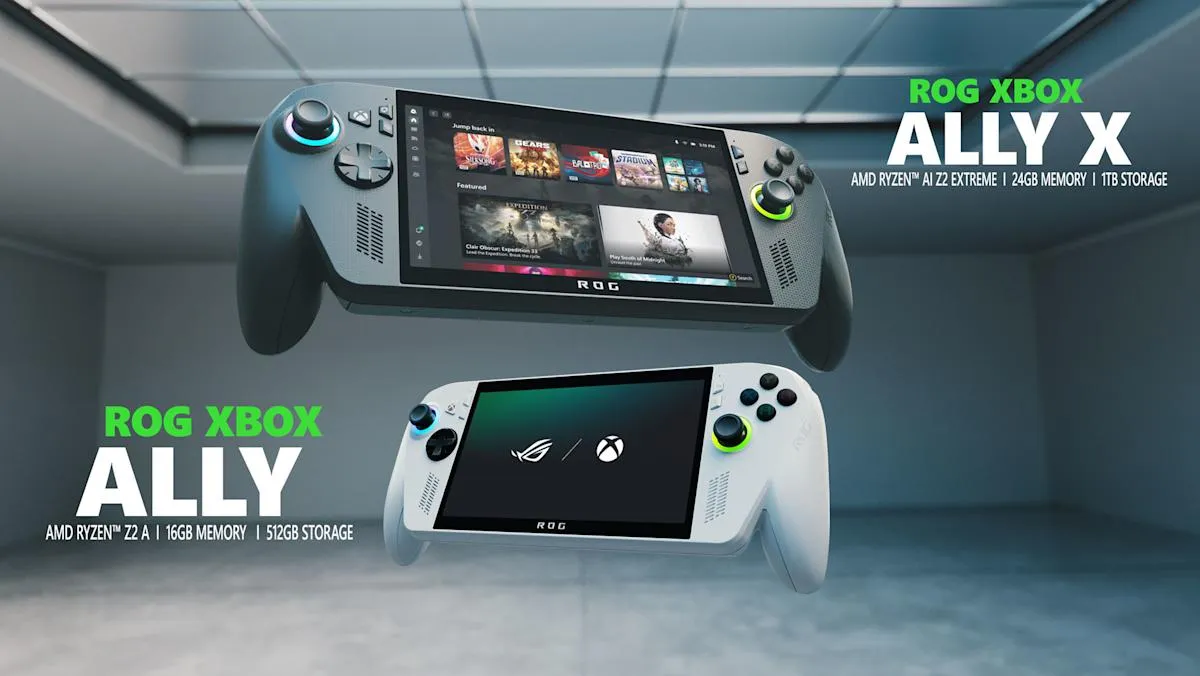
For quite some time, rumors have been circulating about a collaboration between Microsoft and ASUS' ROG division to develop a gaming handheld device. The anticipation culminated during the recent Xbox Games Showcase at the Summer Game Fest, where the two companies confirmed their partnership and introduced two variants of the handheld: the ROG Xbox Ally and ROG Xbox Ally X.
While Microsoft has yet to disclose pricing details, the new handhelds are set to launch this holiday season. Additional information regarding costs, pre-orders, accessories, and more will be made available soon, according to the company.
The Xbox Ally will initially be available in several countries, including Australia, Belgium, Canada, Denmark, Finland, France, Germany, Ireland, Italy, Japan, Korea, Mexico, the Netherlands, New Zealand, Norway, Poland, Portugal, Saudi Arabia, Singapore, Spain, Sweden, Switzerland, Thailand, Turkey, the United Arab Emirates, the United Kingdom, and surprisingly, the United States. Xbox head Sarah Bond announced that every game featured in the showcase will be playable on the Xbox Ally, although it remains unclear whether all titles will run natively on the devices.
One of the standout features of the Xbox Ally and Ally X is that they are not restricted to only playing Xbox games. Users will have the option to play titles available on Battle.net and other major PC storefronts. Notably, the integration of Game Pass ensures access to a vast library of games, coupled with support for the Xbox Play Anywhere initiative, which allows players to enjoy games across multiple devices while maintaining synced progress.
In a groundbreaking move, Microsoft has partnered with Roblox to enable the game to be played natively on handheld devices for the very first time. Additionally, the company is collaborating with third-party developers to create a program similar to the Steam Deck, which will help users identify games optimized for handheld play, including those on the Xbox Ally.
To enhance user experience, those who purchase an Xbox Ally or Ally X will receive a free trial of Game Pass, if they haven't tried it yet. The handhelds feature a full-screen Xbox user interface, complete with a dedicated physical Xbox button that brings up a Game Bar overlay for easy navigation between apps and games, adjusting settings, and chatting with friends.
Accessibility features from Xbox consoles and PCs will also be available, along with the Gaming Copilot. Both systems run on Windows 11, which has been optimized for handheld use, providing straightforward access to device and input controls through ASUS' Armoury Crate. The lock screen and task switcher have been tailored for seamless navigation using a controller.
The Xbox Ally is powered by an AMD Ryzen Z2 A Processor, featuring 16GB of RAM and 512GB of SSD storage. In contrast, the Xbox Ally X is equipped with a more robust AMD Ryzen AI Z2 Extreme processor, offering 24GB of RAM and 1TB of storage. Both models include a microSD card reader, eliminating the need for proprietary storage options.
Both handhelds boast a seven-inch 1080p display with a 16:9 aspect ratio, a 120Hz refresh rate, and 500 nits of brightness. The screens feature anti-reflection technology with Corning Gorilla Glass Victus and support for FreeSync Premium. HD haptics enhance the gaming experience, with the Xbox Ally featuring hall effect analog triggers and the Xbox Ally X offering impulse triggers for better control.
Weighing slightly more than the Nintendo Switch 2 and the PlayStation Portal, the Xbox Ally is designed for comfort and usability. The Xbox Ally weighs 670g (1.47lbs), while the Xbox Ally X is a bit heavier at 715g (1.58lbs). Both models are designed with ergonomics in mind, taking inspiration from the Xbox Wireless Controller to ensure comfortable handgrips.
Each handheld supports video output to a TV or monitor through two USB-C ports with compatibility for DisplayPort 2.1 and Power Delivery 3.0. Notably, one of the USB-C ports on the Xbox Ally X is compatible with Thunderbolt 4. The Ally X also features a more powerful battery, boasting an 80Wh capacity compared to the 60Wh of the standard Xbox Ally, and both models come with a convenient charging stand.
Microsoft's entry into the handheld gaming market through the Xbox Ally represents a significant step in expanding the Xbox ecosystem beyond traditional consoles and PCs. As the company continues to innovate and evolve, the Xbox Ally aims to compete with established players like PlayStation and Nintendo, marking an exciting new chapter in gaming.